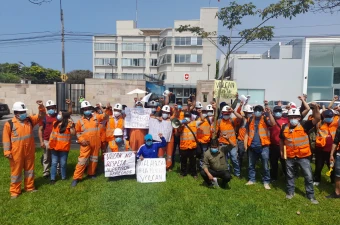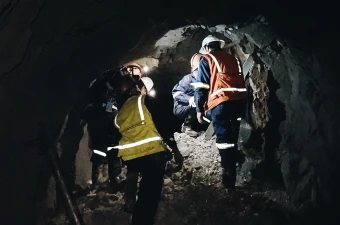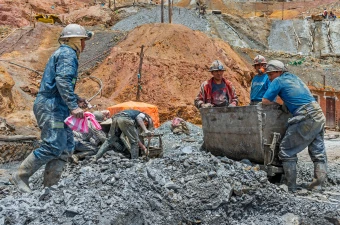The authorities also oblige the Glencore-owned Volcan Compañía Minera mine to enter into a dialogue with workers who have been on strike since December.
Miners’ unions in Peru celebrate the news of 23 February 2022 that the Peruvian government has changed the regulations of the Outsourcing Act. "This is a big step forward in curbing the extreme outsourcing of work. It means a huge improvement for the vulnerable situation of many miners without a direct contract. They often work for the same mining company for decades and do the same work as direct labourers," says Maurice van Beers, regional coordinator for Latin America at CNV Internationaal.
In depth investigation on outsourcing
In 2020, we conducted an in-depth investigation into the situation of outsourced workers at two Glencore operations in Peru, at the Andaychagua (Yauli, Junín) and Antapaccay (Espinar, Cusco) mining sites. It reveals the absence of long contracts, the non-payment of overtime, and the precarious health and safety conditions to which they are exposed. > Summary (DOWNLOAD PDF)
Legislation 13 years ago made it possible to outsource work. The law stipulated that this was only allowed for specialised activities, i.e. the outsourcing of workers for specialised professional functions. However, in practice, core activities were also outsourced without any restrictions. Currently, more than 68 % of miners do not have a direct contract.
Outsourced workers are at greater risk of fatal accidents or occupational disabilities.
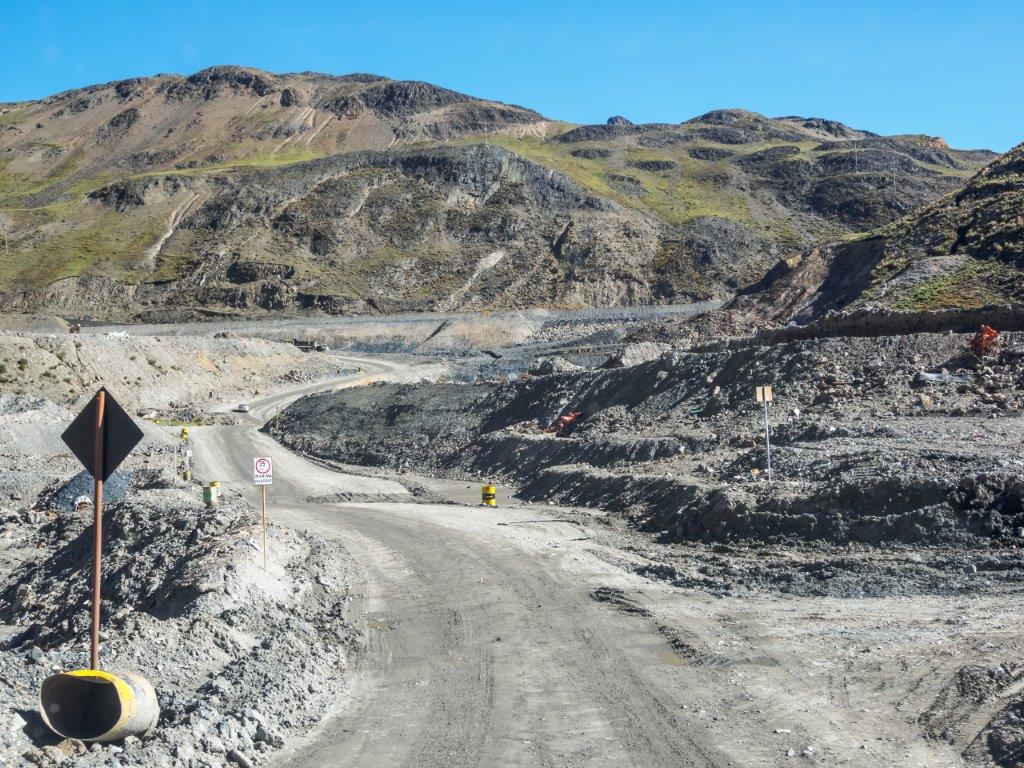
Risks of Outsourcing
"This weakened the position of the miners enormously," Van Beers stresses. "Those who work as miners through employment agencies not only receive lower wages, they are also not properly protected in terms of occupational health and safety. They are therefore at greater risk of fatal accidents or occupational disabilities. Also outsourced workers cannot organize themselves or collectively bargain. Their contracts only last for three months and they receive no payment for overtime.”
Metal mine workers work miles underground in temperatures that reach 40 degrees Celsius. The work is physically very demanding, with mine dust and chemicals affecting the airways.
"Together with the miners' union FENTECAMP, CNV Internationaal has in recent years fought on all fronts to denounce the unbridled outsourcing," Maurice van Beers continues.
Rolando Torres, Secretary General of the Autonomous Confederation of Peruvian Workers (CATP), hopes the new regulation will articulate a much broader process that could adopt the approval of a law on corporate due diligence.
International investors and corporate social responsibility
"It is precisely through good cooperation that we have been able to address all parts of the chain. Only then can the situation really change", explains CNV Internationaals' Maurice van Beers. In the Netherlands, investors in mining industry are increasingly committed to enhancing their corporate social responsibility in their investment policies.
Last year, during the prestigious OECD Forum on Responsible Minerals, a publication was presented with clear recommendations on how to reduce the risks of outsourcing for all stakeholders involved, metal buyers, traders, governments, investors and also the mining companies themselves (link to position paper).
Recommendations presented during OECD Forum on Responsible Minerals
How to reduce the risks of outsourcing for all stakeholders involved, metal buyers, traders, governments, investors and also the mining companies
In Peru, under pressure from the trade union organisation of mineworkers FENTECAMP, politicians and the government are increasingly aware of the need to tackle the excesses of outsourcing.
"The Peruvian government should establish a real coordination between the ministries in charge of improving the national legislation, which should be in line with what is observed by the ILO (International Labour Organisation, specialised agency of the United Nations, red.) supervisory bodies," says Rolando Torres Secretary General of the Autonomous Confederation of Peruvian Workers (CATP).
Measures in the event of non-compliance
“The amendment to the regulations on Outsourcing Act of 23 February is a real breakthrough, clarifying and restricting the outsourcing of core activities. The right of workers to information has also been improved. The strength of this regulation is also that it includes measures for non-compliance,” explains CNV Internationaal’s Maurice van Beers.
Metal mining in Peru plays a crucial role in the global energy transition. There is a growing demand for metals such as tin, silver, zinc, copper and other metals used in electronics in favour of green energy.
International investors and funds
In their investment decisions, international investors are increasingly taking into account the risks to people and the environment. For example, the large Dutch pension fund ABP decided in October 2021 to stop investing in the Swiss multinational Glencore.
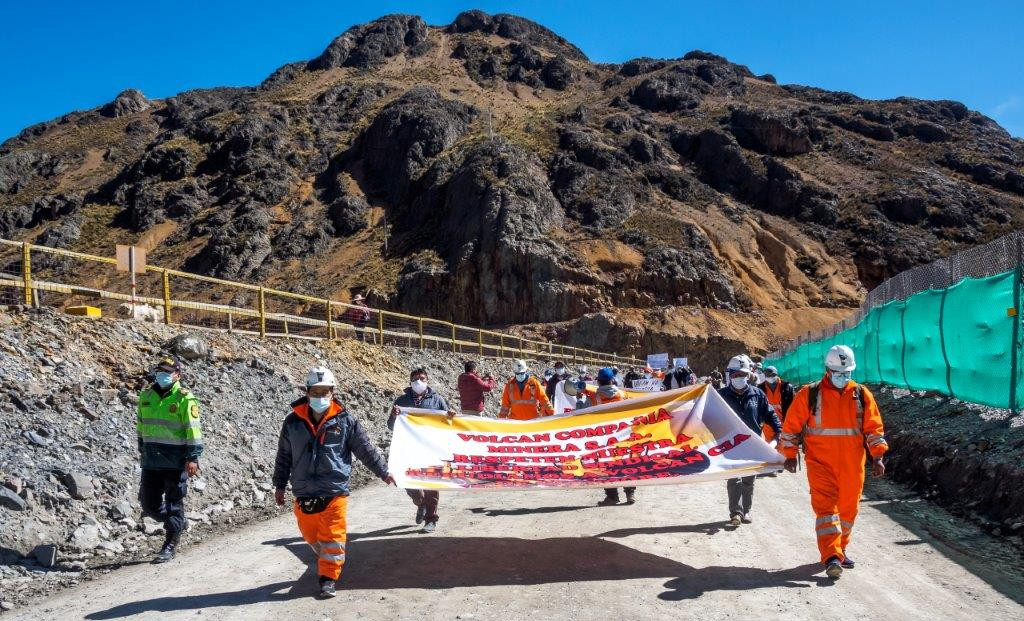
Actions for freedom of association at the Volcan Glencore mine
Glencore is also the largest owner of the Volcan Andaychagua mine in the Junín region, which is one of the most important metal mines in Peru.
The miners at this mine have been on strike since 21 December last year. “The reason was the refusal of Volcan Compañía Minera - Glencore to recognise the union as the representative of all workers, including those without direct contracts,” Maurice van Beers explains.
“During the strike actions, the union, together with CNV Internationaal, continued to press for dialogue with both the main owner of the mine (the Swiss multinational Glencore), and with government agencies, including the Ministry of Labour. “
So far, collective bargaining with unions and the company has been limited only to the direct mine workers, i.e. those with a contract that involves a direct relationship with Volcan Compañía Minera.
The union, together with CNV Internationaal, continued to press for dialogue with both the main owner of the mine (the Swiss multinational Glencore), and with government agencies, including the Ministry of Labour.
However, in these terms, the company also violated the rights of outsourced workers by denying them the opportunity to join the workers' union to voice their labour complaints.
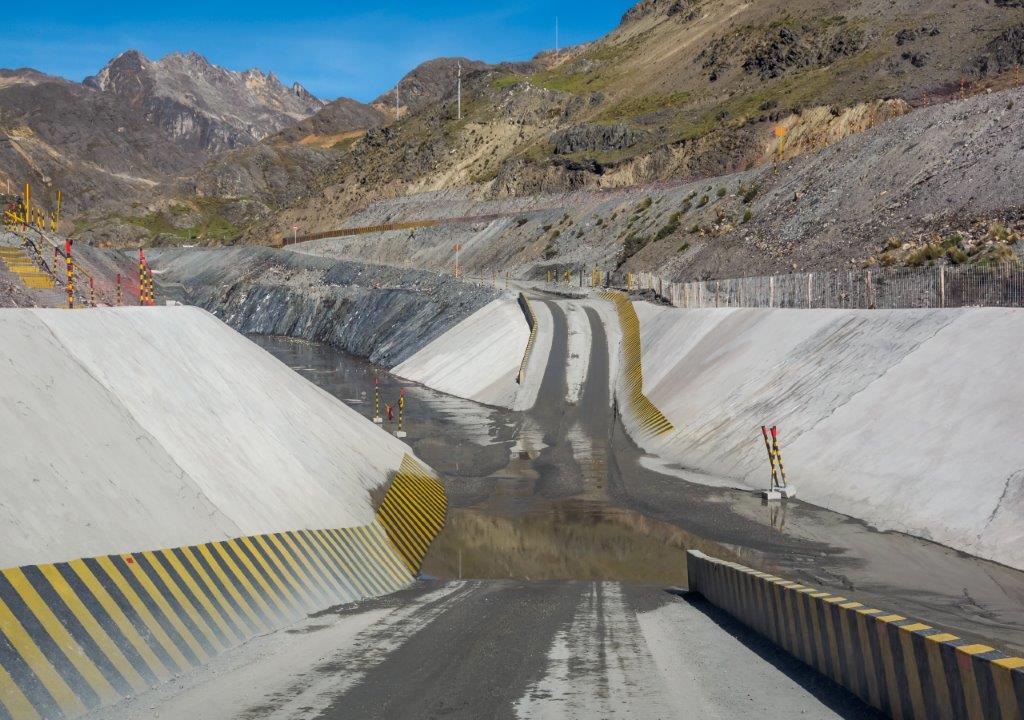
Authorities force Glencore-owned Volcan mine to enter into dialogue
An important breakthrough in this case was on 24 February, when the regional labour board of Junín issued a ruling forcing the Volcan mining company to enter into a dialogue with the miners, who had been on strike since 21 December and had not received any wages since then.
> What's happening in Peru: timeline and more
"It is precisely through good cooperation that we have been able to address all parts of the chain. Only then can the situation really change"
Maurice van Beers, CNV Internationaal
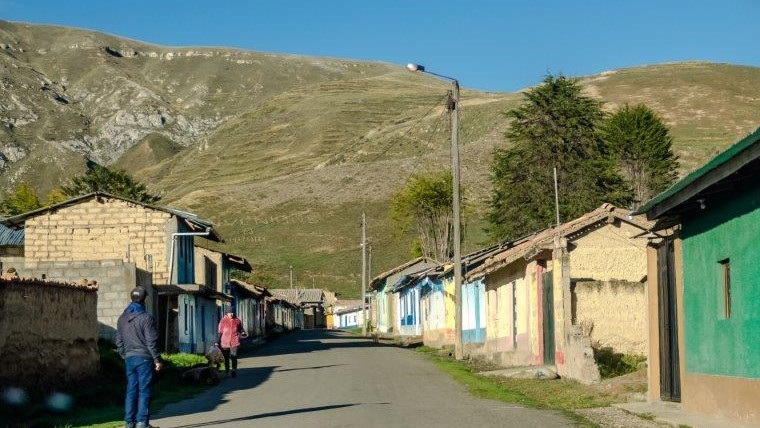
Publication date 02 03 2022
